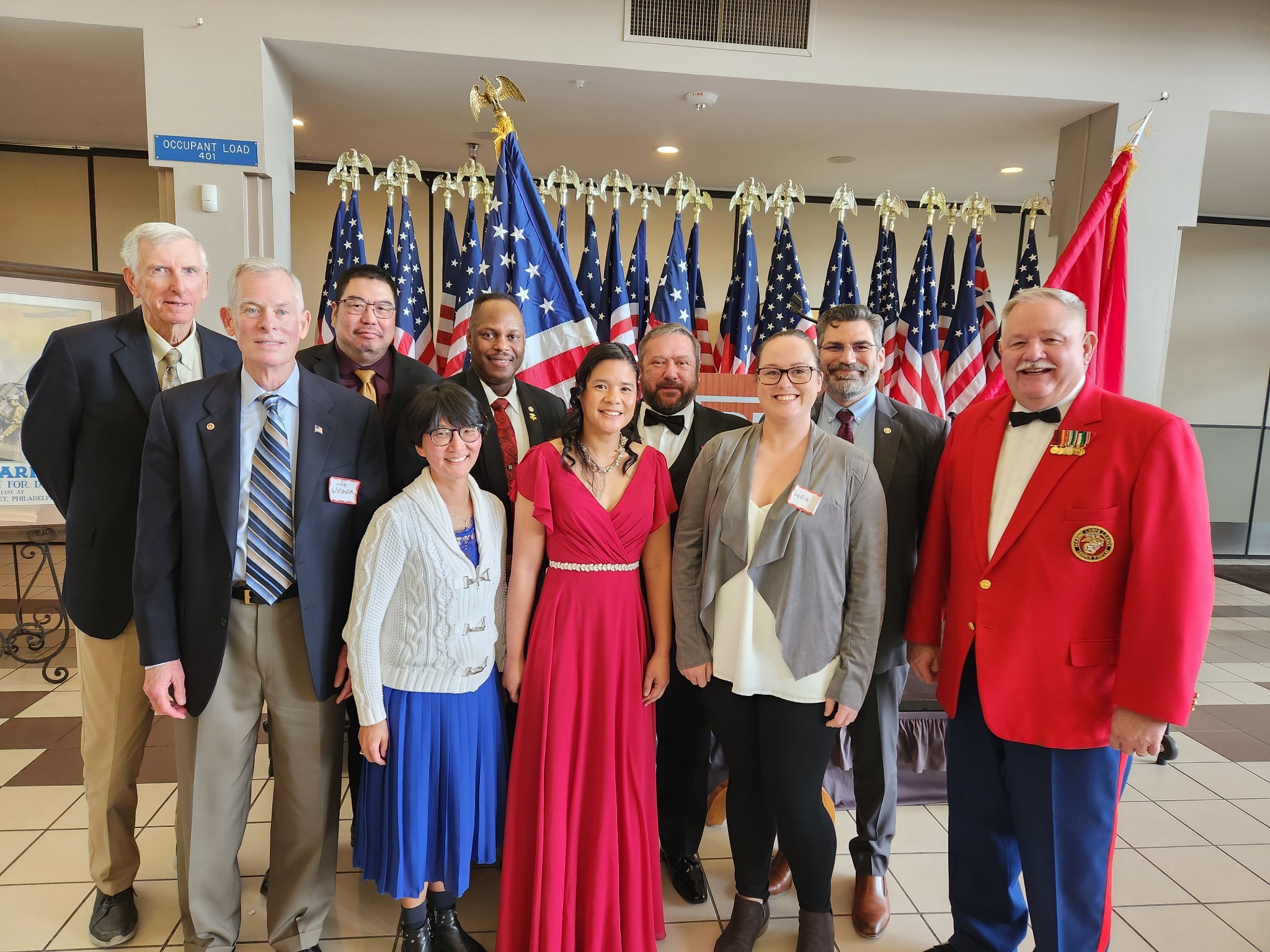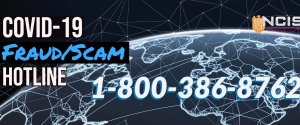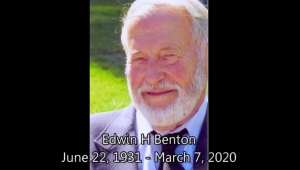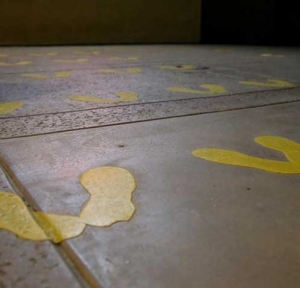Detachment 336 News
Brett Shavers
Arthur Orville Petty, Jr. August 8, 1922 — July 22, 2022
 Arthur Orville Petty, Jr., SgtMaj (Ret.), 99, of Woodbury, Tennessee passed on to Post Everlasting on Friday, July 22, 2022. He was born in Paris, Tennessee on Tuesday, August 8, 1922. Preceding him in death were his father, Arthur Orville Petty; mother, Evie May Timmons Randall; wife of 71 years, Margie Ruth Finley Petty; and sister, Betty Jane Petty Wright. He is survived by his daughters, Jeanne C.P. (Todd) Baxter and Marsha Petty both of Woodbury.
Arthur Orville Petty, Jr., SgtMaj (Ret.), 99, of Woodbury, Tennessee passed on to Post Everlasting on Friday, July 22, 2022. He was born in Paris, Tennessee on Tuesday, August 8, 1922. Preceding him in death were his father, Arthur Orville Petty; mother, Evie May Timmons Randall; wife of 71 years, Margie Ruth Finley Petty; and sister, Betty Jane Petty Wright. He is survived by his daughters, Jeanne C.P. (Todd) Baxter and Marsha Petty both of Woodbury.
It didn't matter whether you knew him as "A.O. Petty," "Art," or "Arthur Petty" because everyone he crossed paths with knew he was more than just a man. He was a true American hero. However, SgtMaj Petty was perfectly content with the title "Marine." It was one he earned throughout his life with the scaffolding starting during his childhood.
Growing up in Detroit during the Great Depression, SgtMaj Petty quit school in the 8th grade and began working on the streets as a newspaper boy. SgtMaj Petty didn't just read American history. He lived it and served a vital role. When he got old enough, he joined the Civilian Conservation Corps (CCC), Camp #1694 in Mount Horeb, Wisconsin, where he learned discipline and teamwork. Little did he know then how fitting the job would be.
Enlisting in the U.S. Marine Corp on March 13, 1941, SgtMaj Petty went on to serve in World War II, the Korean War, and the Vietnam War. At the age of 18, he started his military career at boot camp in Paris Island, South Carolina. From Paris Island, he was sent to San Diego, California, where he was told by his commanding officers that he would be going to China. Missing the boat due to measles, SgtMaj Petty was transferred to San Clemente Island in California.
It was there that he quickly rose through the ranks from Private First Class to Corporal and then Sergeant from 1941 to 1943. SgtMaj Petty endeared himself to his commanding officers by entering the interservice boxing tournament. Proving he could fight with just his fists, he won two fights in a single night. They put him in charge of teaching reserve officers how to drill before earning the title of Sergeant, but that came to an end when he received new orders.
In the last part of 1943, he was transferred as a replacement to K Company, 3rd Battalion, 2nd Marine Regiment in Hawaii. The 2nd Division was just returning from the Battle on Tarawa in Japan, and now, it was SgtMaj Petty's turn to go overseas. From 1944 to 1945, he served as the Sergeant Squad Leader and Platoon Sergeant in K Company, 3rd Battalion, 2nd Marine Division, getting deployed to the Northern Marina Islands and Japan.
The K Company landed on Saipan on June 15, 1944 for Operation Forager. Their objective was to take the city of Garapan. Once completed, they were to move inland and north. It was on the night of the largest banzai attack in history that they found themselves on top of a large cliff looking down on the battle, where history books say 3,500 Japanese lost their lives. The 27th Army Division and the Marines fought a hard battle that night.
On the next morning, they moved down off the cliff and took over the battlefield. The battle lasted two more days before they reached the end of the island and officials deemed it secured. Tinian was the next island, but the battle was less fierce than what they experienced on Saipan. Then, it was on to Okinawa.
On April 1, 1945, SgtMaj Petty and his Marines made their way to Okinawa. They made a fake landing on the lower end of the Pacific side of the island, while the real landing took place in the middle of the island on the China Sea side. There were three LSTs and the USS Hinsdale (APA-120) in the troop convoy. SgtMaj Petty was on one of the three ships that was hit by Kamikaze pilots. His ship was the first to be hit, leaving a large hole and blowing one Sailor and one Marine overboard.
However, his was also the most fortunate of the three as the second ship was hit in the bow and set ablaze. All hands abandoned ship. The third plane came in and hit the Hinsdale above and below the water line, causing the APA to list heavily over on its side. So, SgtMaj Petty aided Marines in getting off the Hinsdale and over to safety. The LST SgtMaj Petty was on stayed at Okinawa seven days and then returned to Saipan.
WWII was ending and the 2nd Division boarded ships for landing in Nagasaki, Japan. Following the atomic bombing on Nagasaki, SgtMaj Petty was part of the first group of Marines to enter the area in August 1945, earning him the title of an Atomic Veteran. After a couple of months in Japan, he was transferred to the 5th Marine Division and move from Japan to the United States.
The 5th Marine Division was disbanded and consequently a train load of Marines to be discharged traveled from California to Illinois. SgtMaj Petty was put in charge of these wild Marines and would say that his time in charge of those Marines was a story in itself. He was discharged on January 7, 1946 and later on would recall details about the difficult battles during WWII as he watched his comrades around him die or get wounded.
With the WWII horrors SgtMaj Petty witnessed, the term "survive" gained an entirely new and real meaning to him. Before his discharge, he had been held in service at the convenience of the government past the date his enlistment was supposed to end on March 12, 1945. However, this did allow SgtMaj Petty to finish his original mission in Saipan and witness the surrender of Japanese Captain Oba with 46 of his armed Japanese soldiers. Several Japanese soldiers escaped to the jungle and cliffs at the battle in Saipan and were hunted until they were found. Captain Oba had fled and successfully led his unit through the jungle, avoiding surrender until 18 months after the Japanese Army had officially surrendered.
SgtMaj Petty's discharge was short lived, and he was called back to active duty in the Marine Corp in 1950 for the Korean War. During that time, his leadership was recognized again. In 1951, he was sent to Sidi-bel-abbis, Africa, the Headquarters of the French Foreign Legion. Upon returning stateside, it seemed that before SgtMaj Petty could catch his breath the U.S. was sending him to deal with issues from the Cold War.
From 1953 to 1954, he served as the Sergeant Major for the 3rd Marine Division's Inspectors Staff for General Pepper. His job entailed visiting and inspecting all of the Marine Corps bases in Japan before returning stateside once again. SgtMaj Petty had a little time back in the states before he began his tour in the Caribbean. During his time at the Marine Corps Base Pendleton, he shot for them in both the pistol and rifle competitions. He was a N.R.A. Master in the pistol and rifle and a lifetime member of both.
Then in 1958, the West Indies received their independence from Great Britain and a ceremony was held in Trinidad. SgtMaj Petty was in command of the United States Marine Drill Formation for the ceremony, so his station was moved to Trinidad. Soon after, he received the orders for reassignment to Marine Barracks, Headquarters, Tenth naval District in San Juan, Puerto Rico as Guards Chief, but he didn't let any time go to waste in showing the Marine Corp was the best of the best.
His rank was reassigned to Sergeant Major only a month after arriving. The district took in Cuba, Panama, Trinidad, Roosevelt Roads Puerto Rico, and several small Posts. While there, SgtMaj Petty used his skills as a competition shooter to place fourth in the Pistol Olympic tryouts for Puerto Rico in 1960. Regretfully, the judges had to let him know he needed to be a citizen of Puerto Rico in order to join the Olympic team, but that was fine with SgtMaj Petty because he had plenty on his plate already. He and Margie served as part of the Greeting Party for Vice President Nixon, and then he received order for another assignment.
From Puerto Rico, SgtMaj Petty was sent to Camp Lejuene, North Carolina. And on a fall day, called home and told Marge to watch the news. In October 1962, he flew into Guantanamo, Cuba, the night of the Cuban Missile Crisis. His objective was to set up a defense line on the fence line with the D Company, 8th Marine Division. He stayed there over two months before returning to Camp Lejeune. SgtMaj Petty’s next assignment was to serve as part of President Kennedy’s security team for his meeting with six Central American Presidents.
In 1964, SgtMaj Petty was called for the Cypress Crisis. He served with the Sixth Fleet Amphibious Striking Arm in the Mediterranean at Point Sirius for more than 70 days. Staying on station, the Fleet showed it was willing and able to protect Americans and guarantee peace between Greece and Turkey. While stationed over in Turkey, SgtMaj Petty took the time to visit Rome, Italy and walk through the Vatican and see the Colosseum. Then, before the Cold War could be resolved, the U.S. was entering the Vietnam War.
SgtMaj Petty and his Marines were deployed in May 1965 to Chu-Lai, Vietnam to begin Operation Starlite. Because of his combat experience, SgtMaj Petty stayed in the field on all Company size operations with I Company, 3rd Battalion, 3rd Marine Division. Again, SgtMaj Petty witnessed the horrors of war. He remembered how the Viet Cong were skilled at camouflage and then recalled having to assist and carry wounded Marines on stretchers to a landing zone only large enough for a single evacuation helicopter.
Another time, he and his Marines took enemy prisoners and had to remove the weapons that the enemy had gotten from wounding or killing Marines from the 4th Marine Regiment. Some of those prisoners had to be taken for interrogation. Other battles that SgtMaj Petty served in before leaving Vietnam in September 1965 were: Piranha, Chu-Lai; Rice Straw-Golden Fleece, and the defense of DaNang.
Unfortunately for SgtMaj Petty, the hardest part was yet to come. For SgtMaj Petty, it was personal to watch the Marines suffer and die because they weren't just Marines; they were his Marines. To add insult to injury, SgtMaj Petty returned to an ungrateful Nation, which made reintegrating to civilian life even more of a challenge. He had resumes torn up in front of him as soon as his interviewers heard he served in Vietnam. However, SgtMaj Petty tried not to take it personal and knew civilians couldn't understand the nightmare Vietnam Veterans lived. He accredited much of his progress in overcoming his challenges to his family and felt their support while he healed.
SgtMaj Petty took pride in his family and in his fellow Marines. The first Marine to receive the Medal of Honor in Vietnam was Robert O'Malley, who was from the 3/3/3 I Company. In 1966, on a normal day in Camp Pendleton, SgtMaj Petty received orders to report to 8th & I, Washington DC, with his dress blues. Art knew immediately it was for O’Malley, but broke out in a sweat as he didn’t know if his dress blues would fit and had no time to be issued new ones. As one of six Marines chosen by O’Malley to stand by his side, Art boarded President Johnson's Air Force One and flew to Texas where President Johnson presented the Medal of Honor to Robert O'Malley. While participating in this ceremony as part of the Receiving Line, he met the President, the President's staff, and their spouses. It was a crowning jewel in his military career to see another Marine honored.
From Camp Pendleton, in the summer of 1968, AO Petty was sent to Sand Point, Seattle, Washington. As part of his duties, it fell to him to notifying families that their son or husband had died. He mourned with each of them and faced his own mental and emotional struggles after Vietnam. In 1969, with 26 years of active duty, he retired from the Marine Corps as Sergeant Major while stationed at Sand Point, Seattle. It was here that Art was able to continue his love of ocean fishing. He fished everywhere he could everywhere he was stationed—California, Trinidad, North Carolina, California, and Seattle.
He loved to fish throughout his life. When he was stationed in Trinidad, he made friends with the locals, and they would go fishing every morning. All of their catches ended up getting thrown into the trunk of Art’s car until it rusted out. In the 60’s while California, SgtMaj Petty took out a commercial fishing license so that the extra catch could be sold. Every weekend found him selling fish to the fish market. In Seattle, it was salmon fishing that was his joy.
Of all the dates throughout his military career, April 5, 1946 was the most remembered because that was the day he married the love of his life, Margie Finley Petty. SgtMaj Petty was a firm believer that behind every great man was an even better woman, and he often doted on the virtues and strength of his beloved wife in interviews. After getting married, Margie followed SgtMaj Petty to North Carolina, California, Trinidad, Puerto Rico, North Carolina, back to California, and finally Washington State. While Art was in Viet Nam, Marge and the girls lived in Madison, TN, among family.
North of Seattle is where the family settled in their roots from 1968 to 1989. It was there that SgtMaj Petty found a job working for the Federal Reserve Bank in Seattle, but even a full-time job, full-time hobby, and family, it wasn't enough for SgtMaj Petty's schedule. He was a man of action with a constant urge to better himself and his community, especially for the veterans. He was a founder of the Veterans of Foreign Wars (VFW) Post 8870 in Edmonds, WA, and as a man of commitment, he immediately became a lifetime member. He was also a member of the Alderwood Church of Christ and quickly became an active there, too.
Margie and Art were married 71 years and raised two daughters, Jeanne and Marsha. Marge also had the habit for having several irons in the fire, going as far as helping to found a church in Puerto Rico while they were stationed there. Then in Washington, she supported her husband by establishing the VFW Auxiliary Unit 8870, and serving as president. They were also a family that believed in serving others and giving back; Marge served as a representative for Elizabeth Arden, as a union representative for Retail Clerks (Seattle), and as a Girl Scout leader for 20 years.
When life somehow became a little too dull for the family, it seemed adventure always found them. In 1981, SgtMaj Petty and Margie visited Manila and Corregidor in the Philippines; Hong Kong, China; Guam; Saipan; and Tinian. In Manila, a number of Marines and their wives were talking to the past Secretary General of the United Nations, Romulo, when his phone rang. It was President Marcos of the Philippines, and he had Romulo bring everyone over to the Palace to have dinner with him.
During part of this grand adventure, SgtMaj Petty and Margie returned to the old WWII battlefields in the Pacific. While on Tinian, they visited the monuments where the atomic bombs were loaded into the bomb bays of the B-29s that bombed Hiroshima on August 8, 1945 and Nagasaki on August 9, 1945. On Saipan, the Veterans and their wives broke ground for a monument to the Veterans of the Battle of Saipan in WWII. SgtMaj Petty could not have been more proud of his wife, and she couldn't be more proud of him either.
At the end of his military career, SgtMaj Petty could claim that he survived three of the major wars in U.S. history—two of which he served in combat. As a Marine, he served in five of the six Marine Divisions. He held the billet of Sergeant Major as a Master Sergeant and was a First Sergeant or Sergeant Major in nine separate battalions and Marine Barracks. He was stationed at: Camp Elliott, California; Camp Lejeune, North Carolina; Camp Pendleton, California; Chagaramus, Trinidad; Gefu, Japan; Guantanamo Bay, Cuba; Hawaii; Nagasaki, Japan; Okinawa; Parris Island, South Carolina; Saipan; San Clemente Island, California; San Diego, California; San Juan, Puerto Rico; Seattle, Washington; Tinian; and Vietnam.
By the time they moved to Cannon County to settle down, SgtMaj Petty had met and shook hands with President John F. Kennedy and President Linden B. Johnson. He'd met Chiefs of Staff, a past President of the United Nations, and Governors. This highly-decorated Marine flew on Air Force One, had dinner with a former President of the Philippines, and even met and conversed with former enemy Japanese Captain Oba in Orlando, Florida during a trip in 1986. He is included in five books about the Vietnam War and has had numerous articles and interviews written about him.
Even with all of his accolades and accomplishments, SgtMaj Petty didn't let the attention go to his head. He remained a quiet, well-mannered, non-assuming, disciplined, and humble man, but quiet didn't mean you wouldn't notice him. SgtMaj Petty was sure to leave an impact everywhere he went. During his time in Cannon County, he became an active member of Veterans and Concerned Citizen of Cannon County, Hilton Stone American Legion Post 279, and Sunny Slope Church of Christ. He also had the hope of passing on the impact of living history through stories from his military career. However, just words weren't good enough to truly tell the story of history that is often taken for granted.
So, SgtMaj Petty took matters into his own hands and made a museum in Clyde Todd's old milk barn that had been converted to an apartment. It included Marine Corps medals and memorabilia from all over the world as well as books, films, and former top secret wartime documents. It may have not made it onto the list of the wonders of the world, but it sure has been one for Cannon County.
If you ask how SgtMaj Petty defied all of odds and survived 3 major wars, divine intervention is sure to come into the conversation. God had a plan for SgtMaj Petty beyond what he could comprehend, but this soldier for Christ lived his eulogy and demonstrated what a life of sacrifice and service truly looks like. Through times of doubt and turmoil, SgtMaj Petty found those footprints in the sand that carried him through some of the most tragic events a single man could endure. That is why SgtMaj Petty was so much more than a man. He was a Marine and proud to be an American.
Visitation will be held at Gentry-Smith Funeral Home on Thursday, July 28, 2022 from 4-8 pm. Funeral services will be Friday, July 29, 2022 at 2 pm in the Gentry-Smith Funeral Home chapel. Richard Burks will officiate. Interment will be in Curlee Cemetery. In lieu of flowers, the family is asking for memorial donations to be made to the Veterans and Concerned Citizens for the Veterans of Cannon County, Hilton Stone American Legion Post 279, or one of the Parkinson’s foundations.
Share memories and condolences at www.gentrysmithfuneralhome.com Gentry-Smith Funeral Home, 303 Murfreesboro Rd. Woodbury, TN 37190, 615-563-5337 because every life has a story.
Beware of COVID-19 Financial Scams
Recently, police, FBI, Interpol, customs, and health regulatory authorities from 90 countries joined forces to stop illicit online sales of medicines and medical products like face masks. They found approximately 2,000 online links advertising items related to COVID-19 and seized over 34,000 masks. The FBI also warns that children who are home from school and spending more time online may be at an increased risk for exploitation.
Here’s a quick summary of the scams and resources that can help. Follow the NCIS Facebook page for resources specifically targeting Marines, Sailors, their familes and the greater Marine Corps community. Call the NCIS COVID-19 Fraud/Scam Hotline at 1-800-386-8762 to report anything suspicious, or get clarity on any communications you are unsure of.
Free Vaccines and Special Virus Tests and Kits Scam
Beware of con artists pitching free vaccines and special virus tests and kits that claim they are covered by insurance. These false offers require payment for fees and shipping. They entice people to order over the phone or internet.
What to do:
If someone calls or sends an email offering COVID-19 testing and it has not been authorized by a physician, they are advised to call the police immediately and keep a record of the person's name and the date of the encounter.
- Complete an electronic report to the Federal Trade Commission.
- Register and report unwanted calls to ‘The National Do Not Call Registry.’
- Register your home or mobile phone for free.
Patient Insurance Cancelled Scam
This scam is when service members receive unsolicited calls saying a loved one is sick in the hospital with COVID-19. The scammer warns that the patient health insurance was cancelled and entice the service member to pay over the phone to reinstate coverage.
What to do:
Hang up on the connected call, and do not talk with the caller. If service members, spouses, or family members need to discuss current coverages here are two credible resources:
- Online: MilConnect
- By phone: TRICARE (click the link to find your local number)
Low-Cost COVID-19 Insurance Scam
Scammers are pitching low-cost “coronavirus” or “COVID-19” health coverage with no waiting period, deductibles or exclusions. Expect robocalls mostly. The promise of full coverage at affordable prices is the pitch. The callers borrow legitimacy as they claim to be mainstream insurance companies. People are asked to call a toll-free number where a trained marketer may try to sell coverage.
What to do:
The National Association of Insurance Commissioners (NAIC) wants you to take extra precautions to spot and stop scammers before it’s too late. Read their article “Tips to Protect Yourself against COVID-19 Scams.”
- If you have a problem with an insurance company or agent, file a complaint with the NAIC.
Scams to Deployed Service Members’ Spouses
These military families are vulnerable to bogus cold-callers and spam emails claiming to be from insurance agents. The scammers will pitch false COVID-19 insurance policies.
What to do:
If service members, spouses or family member need to discuss current coverages, go online to:
- MilConnect
- TRICARE (click the link to find your local number)
Robocalls Scam
Hackers use ‘robo’ technology to pitch false insurance deals to consumers of all ages, daily. These pitches may ask consumers to pay insurance premiums without delivering coverage. These robo COVID-19 insurance cons also can work to steal people’s medical and financial identities.
What to do:
Report illegal robocalls to the Federal Trade Commission. Simply ignore pitches for coronavirus or COVID-19 insurance. Click “OFF” or delete email. No response is the correct response.
Phishing Email Scam
Scammers can obtain your personal data by sending phishing emails. Clicking links to fake insurers may load viruses on your computer that puts you at risk of identity theft.
What to do:
The best thing to do when a phishing email is received is to delete it. Here are some warning signs that may indicate a phishing attempt.
- Phishing emails are crafted by computer hackers, not English majors. Watch for spelling and grammatical mistakes. If an email includes spelling, punctuation, and grammar errors, it is likely a sign you’ve received a phishing email.
- Avoid emails that sounds like a salesman. Phishing emails often try to create a sense of urgency or demand immediate action. If you click that link and provide your personal information, you may regret it.
- Legitimate government agencies won’t ask for your personal information. Never respond to the email with your personal data. Even if the icon or logo looks legit.
- Read the warning letters issued by the FTC and FDA to seven sellers of unapproved and misbranded products, claiming they can treat or prevent the Coronavirus.
- You can report phishing to The Cybersecurity and Infrastructure Security Agency (CISA) by sending email to phishing-report@us-cert.gov.
Scams to Veterans Age 65 or Older
Veterans are being targeted by COVID-19 robocalls and other scams that ask for their health insurance information, particularly Medicare numbers. Veterans are also pitched fake covid-19 vaccines and tests. The scammer then makes false claims against the veteran’s Medicare account. There have been recent news reports that scammers even have approached residents at senior housing and assisted-living facilities for Medicare scams. There have been reports of teams in people in white coats going door-to-door offering fake virus testing. After money is exchanged, the victim is hit again with a phone call from someone pretending to be nurse offering test results after they receive a credit card number.
What to do:
- If a Marine gets a knock at their door offering medical testing, do not let them in. Call Military Police or local community police immediately. Also give your parents and grandparents this same information, and advise them never to give Medicare numbers to anyone they don’t know.
- If someone calls or sends an email offering COVID-19 testing and it has not been authorized by a physician, they are advised to call the police immediately and keep a record of the person's name and the date of the encounter.
- The Tricare MHS Nurse Advice Line is available to answer service members’ questions.
- The best defense is to say NO if anyone contacts you and asks for your Social Security number, bank account number, credit card information, Medicare ID number, driver’s license number, or any other personally identifiable information by phone, in person, by text message, or email.
Charity Scams
Military Service members and families must also beware of charity scams. Scammers will reach out via phone and pose as a real charity or pretend to be following up on a donation pledge.
What to do:
Verify a charitable organization’s authenticity before you donate. Visit the Federal Trade Commission’s (FTC) website to learn how to verify a charity.
Bread Crumbing Scam
Beware of PROFITs and NON-Profits that “breadcrumb’ you to buy Products and Services. They pretend to offer free consultation but will require you to purchase products and services.
What to do:
Ignore calls and emails claiming low-cost insurance or other suspicious deals. Don’t press “1” or another key to be removed from a call list.
References:
- Organized Crime and Corruption Reporting Project-OCCRP
- Elderly Veterans | VA.gov
- Massachusetts Senior Medicare Patrol
- Consumer Financial Protection Bureau
- FBI Warns Health Care Professionals of Increased Potential for Fraudulent Sales of COVID-19-Related Medical Equipment. Send FBI a TIP.
Article source: https://usmc-mccs.org/articles/beware-of-covid-19-financial-scams/?fbclid=IwAR3QAUuQJi2-TWw0CrnuldslWFxKcgPq9brrmVYs-kkaJ2GcwsjSP-DEY4M
Edwin Benton Service Tahoma National Cemetery 17 March 2020
Social Security Payroll Tax Deferral
UPDATE: The Consolidated Appropriations Act, 2021 was passed and extended the period for collecting deferred 2020 Social Security taxes. The period for collection is now January 1, 2021 through December 31, 2021 (instead of January 1, 2021 to April 30, 2021).
At the end of December, the 2020 Social Security tax deferral will end. Beginning January 2021, the normal 6.2% Social Security tax withholdings will again be deducted from pay for military members and civilians, and an additional deduction for the deferred 2020 Social Security tax collection taken from pay.
Per IRS guidance (as modified by the Consolidated Appropriations Act, 2021), the Social Security taxes deferred in 2020 will be collected from pay between January 1 and December 31, 2021.
Military Members -
For active duty military members, the 2020 deferred Social Security taxes will be collected in 24 installments, from your mid-month and end-of-month pay between January 1 and December 30, 2021.
For reservists and guardsmen performing intermittent duty in 2021, the amount collected may not be the same every pay period. DFAS will collect 2% of net available from each weekly, mid-month and end-of-month pay, and will continue until the deferred taxes have been repaid in full.
Beginning in January 2021, your myPay LES will reflect the monthly collection amount and contain a note in the remarks section that shows the remaining balance of deferred Social Security taxes.
Civilian Employees –
The amount of Social Security taxes deferred in 2020 will be collected in 24 installments between pay-periods ending January 16 and December 4, 2021.
Beginning in January 2021, your myPay LES Remarks section will include the 2020 deferred OASDI collection amount in that pay period, as well as the remaining balance to be collected.
If you separate or retire prior to the deferred Social Security tax being collected in full the unpaid balance will either be collected from your final pay or you may receive a debt letter with instructions for repayment.
Background
Pursuant to IRS Notice 2020-65 and at the direction of the Office of Management and Budget and Office of Personnel Management, Social Security (Old Age, Survivors, and Disability Insurance) or “OASDI” tax withholdings were temporarily deferred from September through December 2020 and will be collected from wages paid between January 1, 2021 and December 31, 2021, for employees who had wages subject to OASDI of less than $4,000 in any given pay period. These actions were in response to the Presidential Memorandum issued on August 8, 2020.
Still have questions? See the Military and Civilian FAQs for more information.
January series to honor the Desert Storm Veterans 30th anniversary
Today the VARC is sharing a January series to honor the Desert Storm Veterans 30th anniversary. The series will highlight experiences from all military branches and leadership, will cover VA research, Registry exams and environmental exposures, and will share how this war ‘forever changed the US military’.
Please see the description and links below.
https://www.blogs.va.gov/
In January 1991, members from all five military branches joined a coalition to push out Saddam Hussein’s forces from Kuwait for Operation Desert Storm.
During January 2021, VA will profile these Veterans in a series of stories for Desert Storm’s 30th anniversary.
More than 2.2 million U.S. service members served during the era and an estimated 694,550 deployed to the Gulf. An estimated 1.68 million Veterans from that era are still alive.
During January, these stories will feature Veteran experiences from a wide range of perspectives. Army and Marine Veterans tell about battles on the ground. Air Force Veterans share about their experiences in the air. Navy and Coast Guard Veterans tell about their experiences at sea. These stories will include print and video stories. The coverage starts Jan. 1.
Veterans will also provide their perspective on the legacy of Operation Desert Storm. From the first war covered on cable news to a joint service campaign that overwhelmed the opposition, Veterans will share how the war forever changed the U.S. military. The coverage will include both individual stories and overall pieces, including an interview with Army Veteran Colin Powell, who served as the chairman of the Joint Chiefs of Staff during Desert Storm.
Veterans can also learn about VA research and VA’s Gulf War Registry Health Exam. This program alerts Veterans to possible long-term health problems that may be related to environmental exposures during their military service.
Veterans told these stories over the past several months. A team of VA story tellers interviewed Veterans starting in May 2020.
Where to view
People can view content at a special Desert Storm website at https://www.blogs.va.gov/
Content is always available on the following social media channels.
· Facebook page is at https://www.facebook.com/
· Twitter feed is at https://twitter.com/
· YouTube channel is at https://www.youtube.com/user/
· Instagram is at https://www.instagram.com/
Marsha Turner, MSEd
Managing Director / Alternate Designated Federal Officer
Research Advisory Committee on Gulf War Veterans’ Illnesses
Health Services Research & Development
Durham VA Health Care System
508 Fulton Street (152) | Durham, NC 27705
P: 919-945-6462 | marsha.turner2@va.gov
A new year to support Marines and FMF Corpsmen and FMF Chaplains
Okay, Marines. Listen up. This is a new year, but it is no different than any other year in supporting your fellow Marines, FMF Corpsmen, and FMF Chaplains. Be there for someone and you will make a difference.
We each stood on the yellow footprints, coming from all backgrounds and belief systems. We were all different (we still are different!), but we stood for a common goal. That is what makes Marines. Standing and supporting each other.
Let 2021 be the year that you make a difference. Join a Marine Corps League detachment. Donate to the League. Recruit others to join. Connect the community to your local detachment. Reach out and make a difference. I promise that not only will you not regret it, but you will wonder why you did not make this effort years earlier.
The Marine Corps League’s door is open to you, regardless of MOS, rank, or time or place of service. The Marine Corps League is here for you, so you can be here for others.
Happy New Year Marines. Do good.
VA begins COVID-19 vaccinations
WASHINGTON — The U.S. Department of Veterans Affairs (VA) announced today, the New Orleans and Bedford, Massachusetts VA Medical Centers are the first two department facilities to begin administration of COVID-19 vaccinations to frontline health care employees and Veterans residing in long-term care Community Living and Spinal Cord Injury and Disorder centers.
See here for a photo of the first VA patient to receive the vaccine.
Both facilities are part of the initial group of 37 VA medical centers across the country that began receiving and administering the Pfizer-BioNTech COVID-19 vaccine this week.
The sites were chosen for their ability to vaccinate large numbers of people and store the vaccines at extremely cold temperatures.
COVID-19 vaccine implementation will include an initial limited-supply phase followed by a general implementation phase, when large supplies of the vaccine become available.
“Ultimately, the department’s goal is to offer the vaccine to all Veterans receiving care at VA,” said VA Secretary Robert Wilkie. “As increased vaccine supply is obtained, VA plans to distribute these vaccines at additional facilities to provide the vaccine to more Veterans and employees.”
The U.S. Food and Drug Administration stated in clinical trials the Pfizer-BioNTech COVID-19 vaccine was 95% effective in preventing COVID-19 disease. The vaccine is administered as a series of two doses, 21 days apart. The side effects appear similar to those of other vaccines and are short-lived.
VA will report directly to the CDC data on all vaccine doses administered by VA. The department will also provide general, public updates on the number of people who receive the vaccination at these sites, similar to how VA posts COVID-19 testing figures.
Veterans seeking additional information may sign up to get updated information through VA’s COVID-19 Vaccine Keep Me Informed tool, visit the VA Coronavirus Vaccine FAQs webpage, contact their care team or visit their facility website.
###
For VA’s news releases
For Veterans: Coronavirus FAQs page
Further information: VA's public health response.
files/20-190_VA_begins_COVID-19_vaccinations_14DEC2020_FINAL.pdf









